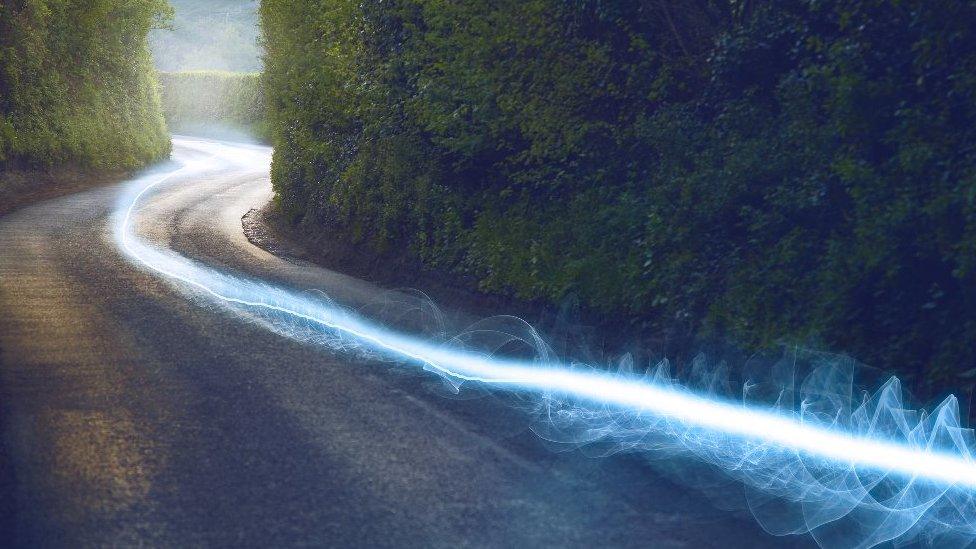Digital Economy Bill: Networks and porn sites face fines
- Published

Adult sites that fail to check visitors' ages could face fines of up to £250,000
The government has proposed new powers to fine mobile network operators and pornographic website owners.
The measures are outlined in the Digital Economy Bill, external, which was published on Tuesday.
It says phone operators could be penalised if they miss coverage targets and other licence commitments made to the sector's regulator.
And it sets out how a separate watchdog could punish adult sites that fail to check their visitors' ages.
Other measures include:
a new legal right for homes and businesses to be able to get a minimum download speed on request
a proposal that broadband and mobile providers should automatically have to compensate their customers if they fail to meet some of their obligations
added sentencing options for the English and Welsh courts to punish internet piracy
tougher penalties for nuisance callers
the communications regulator Ofcom taking charge of oversight of the BBC
'More proportionate'

Networks could be fined if they fail to extend 4G coverage as quickly as promised
If the bill is passed, Ofcom would be able to fine mobile networks a maximum £20,000 a day, up to a total sum of £2m, if they fail to hit agreed service goals.
The regulator has suggested this would give it, external "more flexibility in our important work to manage and ensure optimal use of spectrum".
"At the moment, when a provider breaches its licence, in most cases our only sanction is to remove the licence completely, or launch criminal proceedings," a spokesman said.
"The bill would allow Ofcom alternatively to impose financial penalties, which may in some cases be a more proportionate means of securing compliance."
Age checks
The law also proposes creating a separate age-verification regulator, which will be told to publish guidelines about how sites should ensure their users are aged 18 or older.
It says this body should be able to fine pornographers up to £250,000 if they fail to comply.
Details of how this would work in practice have still to be determined.
But the bill states that the watchdog would be able to alert credit cards and other payment providers as well as other companies providing a service to the sites in cases where it cannot persuade their owners to comply.
Faster speeds
One detail not mentioned in the bill is that the new broadband universal service obligation (USO) should set 10Mbps as the minimum download speed.
However, a factsheet issued by the Department for Culture, Media and Sport does refer to this as being its "ambition", external.

The government wants faster internet speeds in rural parts of the UK
"Ofcom has reported that 10Mbps is the speed needed for a USO, given a typical household's use of digital services, and is adequate for demanding services like streaming high definition video content," it says.
"The speed will be specified in regulations to allow it to be updated when necessary.
"Regulations can be updated in a much shorter timescale than a new bill, which can take a year before it can be brought into force."
Assuming there are no major amendments to the bill, one industry watcher said its impact would probably be determined by how tough the two regulators were willing to be.
"No matter how the law gets written, it's how the regulators implement it and who they chase for non-compliance that determines its real-world effect," said Andrew Ferguson, from the Thinkbroadband news site.
"Ofcom has a history of being a light-touch regulator - it tends to concentrate on market failures rather than trying to drive the whole market forward."
- Published18 May 2016

- Published8 April 2016
- Published24 March 2016
